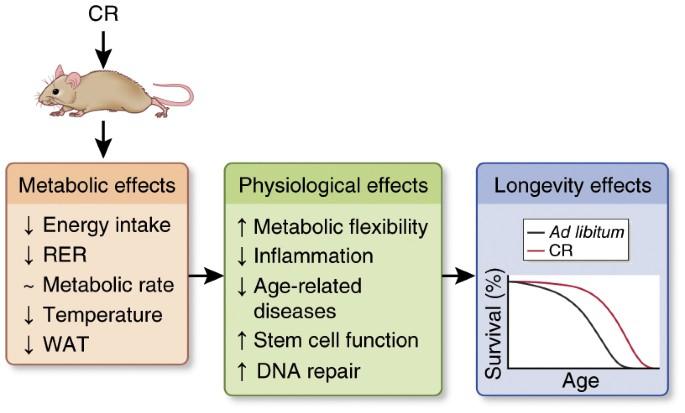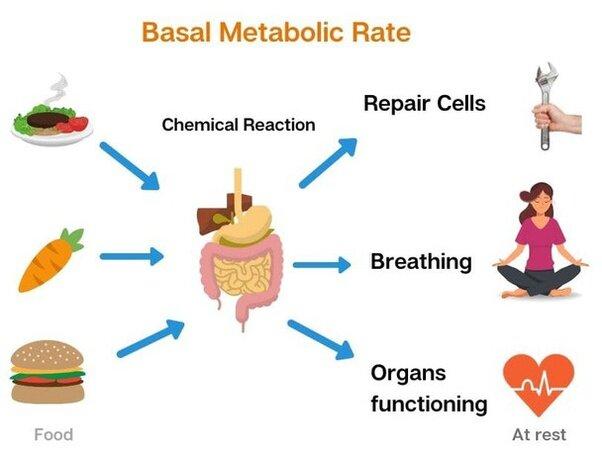As the years gracefully unfold, many of us find ourselves pondering the mysteries of our own bodies, especially when it comes to the persistent belief that our metabolism—the invisible engine that powers our every move—inevitably slows down with age. This age-old assumption is often whispered among friends and family, lamented during birthday celebrations, and blamed for those stubborn pounds that seem to cling tighter with each passing year. But is this slowdown an unavoidable truth, or is it simply a myth woven into the fabric of our collective consciousness? In this exploration, we delve into the science behind metabolism and aging, seeking to unravel the complexities and uncover the truth behind whether our metabolic rate truly declines as the candles on our birthday cake increase.
Understanding Metabolism: Separating Fact from Fiction
As we journey through life, it’s commonly believed that our body’s ability to burn calories diminishes, often being blamed for those extra pounds that seem to appear out of nowhere. But how much of this belief is actually true? Scientific research suggests that while metabolic rates do undergo changes as we age, the impact might not be as dramatic as popular opinion would have us believe.
- Early Adulthood: Metabolic rate tends to remain stable through the 20s and 30s.
- Middle Age: It is around the 40s and 50s that a slight decline can be observed, often attributed to a decrease in muscle mass.
- Later Years: Significant slowing might occur in the 60s and beyond, but this is also heavily influenced by lifestyle choices.
It’s essential to note that lifestyle factors such as diet, physical activity, and muscle maintenance play a crucial role in how our metabolism behaves over time. Staying active, maintaining muscle mass, and making healthy dietary choices can help mitigate the natural slowdown, keeping your metabolism more robust than you might expect.

The Science Behind Age-Related Metabolic Changes
The transformation in our metabolic processes as we age is intricately linked to a variety of physiological factors. As we grow older, there is a natural decline in muscle mass, which plays a significant role in how our body utilizes energy. Muscle tissue burns more calories than fat even at rest, and a decrease in muscle mass leads to a reduced basal metabolic rate. Additionally, hormonal changes, such as decreased levels of testosterone and estrogen, contribute to alterations in how effectively our bodies can metabolize nutrients.
- Muscle Mass Reduction: A natural decline as part of aging.
- Hormonal Shifts: Affect nutrient metabolism efficiency.
- Cellular Efficiency: Mitochondria in cells may become less efficient.
Moreover, the efficiency of mitochondria, the powerhouse of our cells, may diminish with age, impacting how our bodies convert food into energy. This combination of factors creates a complex web of changes that result in the perception of a slower metabolism. Understanding these elements is key to adopting strategies that can help mitigate the effects of age-related metabolic changes, such as regular physical activity and a balanced diet rich in protein.

Practical Tips to Boost Metabolism at Any Age
Boosting your metabolism can be a game-changer for maintaining energy and managing weight, regardless of your age. Here are some practical tips to rev up your metabolic rate:
- Stay Hydrated: Drinking water not only helps in digestion but also plays a crucial role in burning calories. Try starting your day with a glass of water to kickstart your metabolism.
- Incorporate Strength Training: Building muscle mass is key, as muscles burn more calories than fat. Consider adding resistance exercises to your routine a few times a week.
- Don’t Skip Meals: Regular meals keep your metabolism active. Skipping meals can slow it down, as your body shifts into conservation mode.
- Spice Things Up: Foods like chili peppers contain capsaicin, which can boost your metabolism. Consider adding a little spice to your meals for an extra metabolic boost.
By integrating these strategies into your lifestyle, you can effectively enhance your metabolism and maintain vitality at any stage of life.

Lifestyle Adjustments for a Healthier Metabolic Rate
As the years pass, it’s common to hear that metabolism takes a backseat, leading to weight gain and reduced energy levels. However, with a few strategic lifestyle adjustments, you can maintain or even enhance your metabolic rate. Here are some effective ways to keep your metabolism humming:
- Prioritize Protein: Integrating protein-rich foods into your diet not only helps in muscle maintenance but also increases the thermic effect of food, meaning your body burns more calories digesting them.
- Stay Hydrated: Water is a crucial component in the metabolic process. Ensuring adequate hydration can help in maintaining an optimal metabolic rate.
- Strength Training: Incorporating resistance exercises into your routine can help build muscle mass, which naturally burns more calories at rest.
- Get Quality Sleep: Sleep deprivation can disrupt hormonal balance, leading to a slower metabolism. Prioritize quality sleep to keep your metabolic functions in check.
- Mindful Movement: Integrate more physical activity into your daily routine, whether it’s through taking the stairs, walking, or engaging in a hobby that keeps you active.
By embracing these changes, you can counteract the natural decline in metabolism associated with aging, ensuring that you stay vibrant and energetic through the years.
Key Takeaways
As we draw the curtains on our exploration of metabolism and the sands of time, it’s clear that the narrative is far more nuanced than the simple equation of age equals slowdown. While scientific insights continue to unravel the intricate dance between biology and lifestyle, it’s evident that each of us holds some sway over our metabolic fate. Whether through mindful nutrition, regular physical activity, or simply embracing a holistic approach to well-being, the power to influence our metabolic journey remains in our hands. As we ponder the mysteries of metabolism, let us remember that age is but a number, and the vitality of our years can be shaped by the choices we make today. With curiosity as our guide, we can continue to explore and adapt, nurturing the dynamic engine that propels us through the tapestry of life.


































